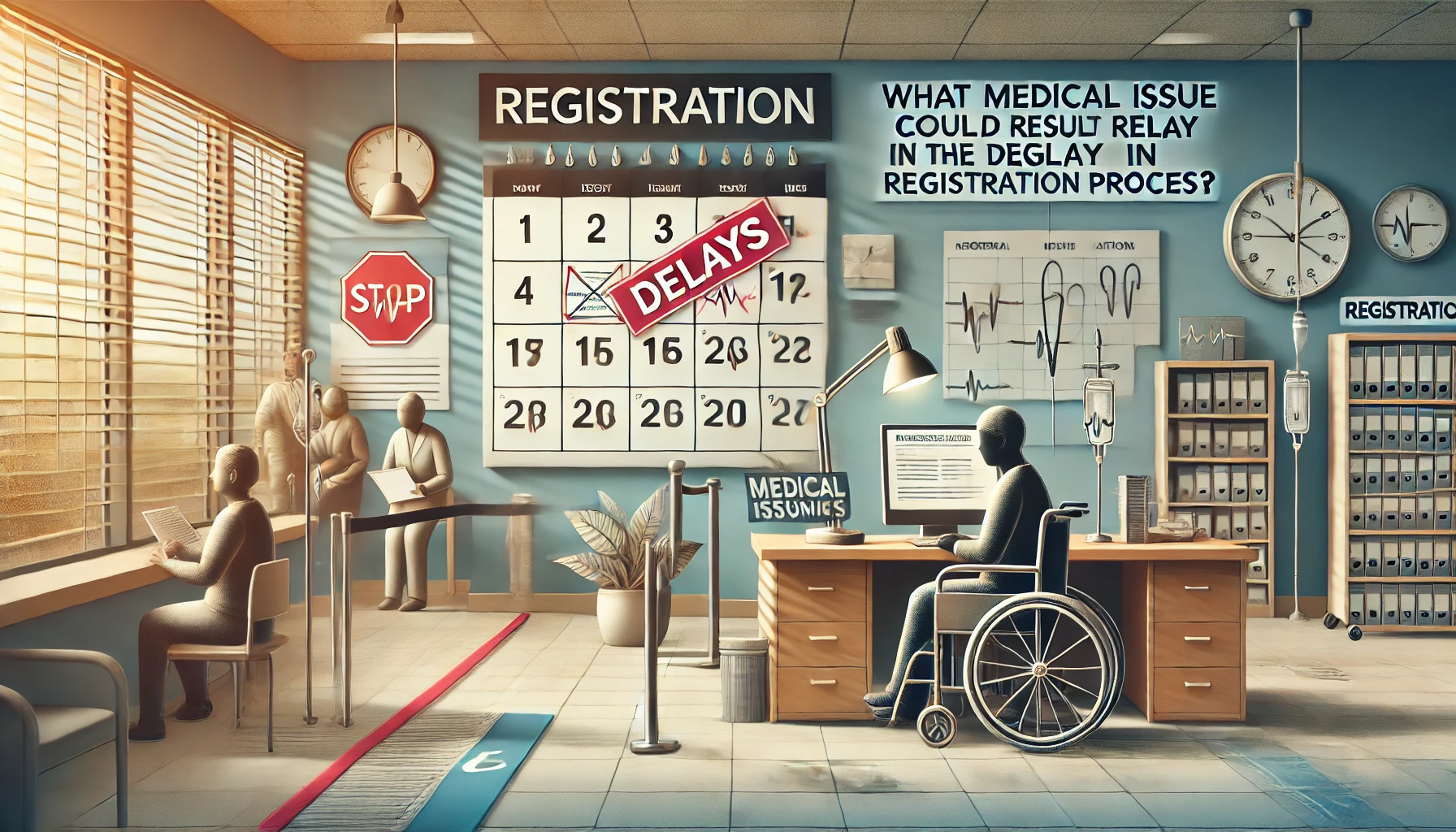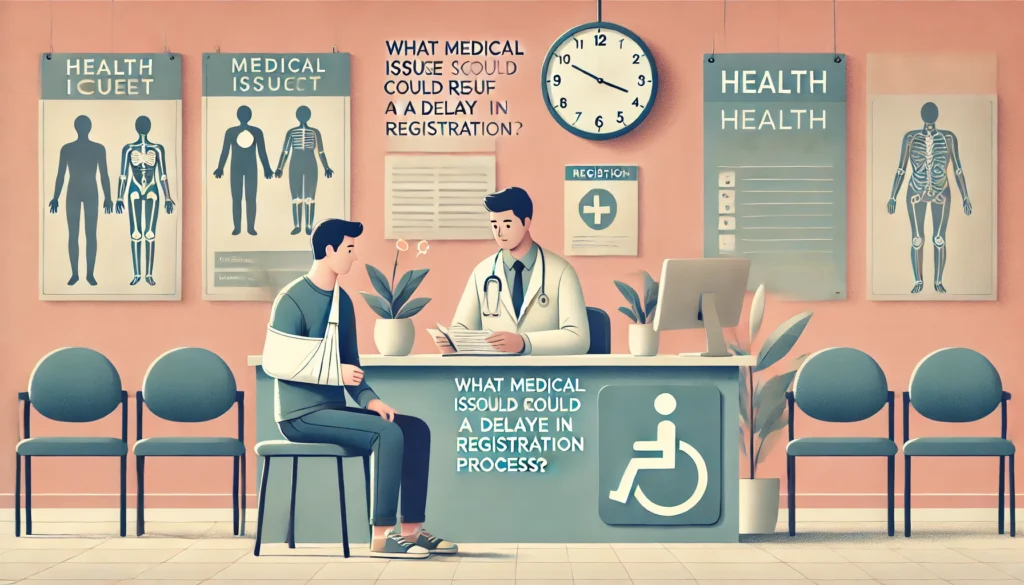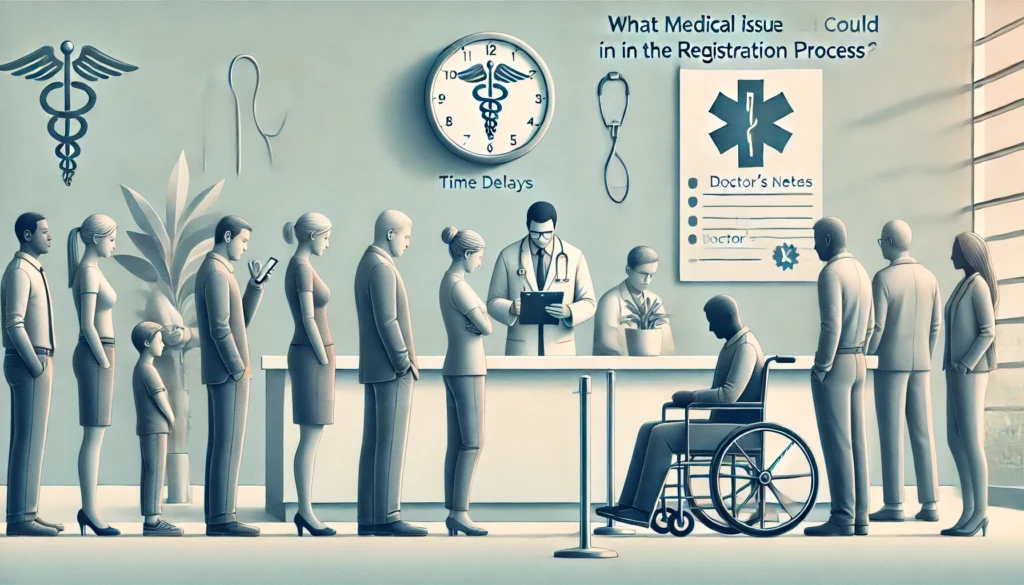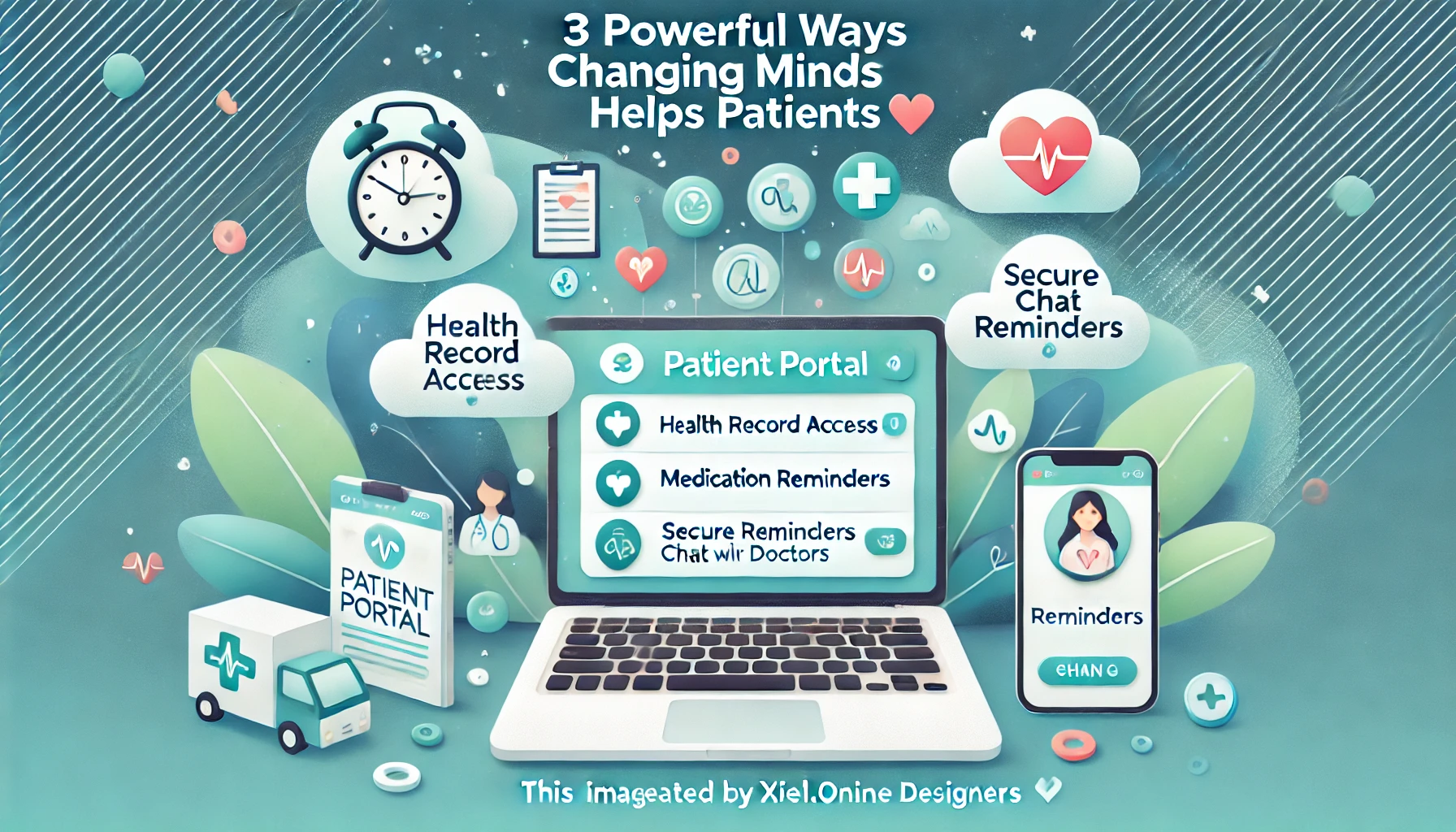
The registration process, whether for a job, educational course, or government service, is often straightforward. However, certain medical issues can create unexpected delays. Let’s delve into how health complications can impact such procedures and what can be done to navigate these challenges effectively.
Table of Contents
The Impact of Health on Registration
Health plays a critical role in our day-to-day activities, including formal processes like registration. A “medical issue” — even one that seems minor — can sometimes interrupt or slow down these activities. It’s crucial to address such issues promptly to avoid setbacks. As Benjamin Franklin famously said, “An ounce of prevention is worth a pound of cure.”

Common Medical Issues Causing Delays
Here’s a closer look at some medical problems that can delay registration:
- Physical Disabilities:
♿️ People with physical disabilities may face infrastructural or procedural hurdles during registration. For instance, inaccessible venues can complicate things. “Accessibility isn’t a privilege; it’s a right!” ✨ - Chronic Illnesses:
⏳ Chronic conditions like diabetes or arthritis can demand frequent hospital visits, leaving little time for formalities. - Contagious Diseases:
💉 Infectious diseases such as COVID-19 or influenza can require isolation, delaying attendance at in-person registration events. - Mental Health Issues:
🧠 Anxiety, depression, or other mental health challenges can lead to missed deadlines or incomplete paperwork. - Medical Emergencies:
⚡️ Sudden accidents or health crises can make it impossible to attend registration appointments. - Incomplete Medical Records:
🕵️♂️ Sometimes, authorities require comprehensive health documentation, which might not always be readily available.
Coping Strategies for Individuals
If you’re facing a delay due to a “medical issue,” here are some practical tips:
- Communicate Proactively:
📩 Inform the relevant authorities about your health concerns as early as possible. A little transparency goes a long way. - Seek Extensions:
⏳ Many organizations provide extensions for valid medical reasons. Don’t hesitate to ask. - Digital Alternatives:
💻 Explore online registration options, which can be a game-changer for people with mobility issues. - Support Networks:
🤝 Rely on friends, family, or caretakers to help manage paperwork or attend appointments on your behalf.
How Institutions Can Help
Organizations can mitigate delays caused by medical issues by adopting inclusive practices. Some measures include:
- Flexible Deadlines:
⏰ Allow more time for individuals with health challenges. - Remote Options:
📞 Provide online registration or virtual appointments to accommodate those unable to attend in person. - Accessibility Improvements:
♿️ Ensure registration venues are wheelchair-accessible and user-friendly.

Real-Life Stories
Take the example of Sarah, a student with lupus. 🌿 She faced difficulties registering for university due to frequent hospital visits. By reaching out to the administration and providing necessary medical proof, Sarah secured an extension and successfully enrolled. Her story reminds us that “where there’s a will, there’s a way.”
Summary Table
| Aspect | Details |
|---|---|
| Common Medical Issues | – Physical disabilities can lead to infrastructural or procedural hurdles ♿️. |
| – Chronic illnesses often require frequent hospital visits, leaving little time for formalities ⏳. | |
| – Contagious diseases, like COVID-19, may necessitate isolation, delaying in-person registration 💉. | |
| – Mental health issues, such as anxiety or depression, can cause missed deadlines 🧠. | |
| – Medical emergencies, like sudden accidents, can prevent attendance ⚡️. | |
| – Incomplete medical records may delay submissions as required documents are gathered 🕵️♂️. | |
| Coping Strategies | – Communicate proactively with relevant authorities to explain health concerns early 📩. |
| – Seek extensions, as many organizations allow for valid medical reasons ⏰. | |
| – Use digital alternatives, such as online registration, to bypass physical hurdles 💻. | |
| – Rely on support networks, like friends or family, to assist with paperwork or appointments 🤝. | |
| Institutional Measures | – Flexible deadlines provide breathing room for individuals with health challenges. |
| – Remote options, such as virtual appointments, reduce the need for physical attendance. | |
| – Accessibility improvements ensure venues are user-friendly and inclusive ♿️. | |
| Real-Life Example | Sarah, a student with lupus, overcame challenges by securing extensions with proper documentation. |
Final Thoughts
Medical issues can undoubtedly complicate the registration process, but they don’t have to derail it completely. With proactive measures, clear communication, and institutional support, these challenges can be overcome.
Remember, your health should always come first. If a “medical issue” delays your registration, take heart and address it one step at a time. As they say, “Every storm runs out of rain.” ☔️
For more insights and support, visit our site: xiel.online. Stay healthy, inspired, and informed with Xiel.online! ✨





